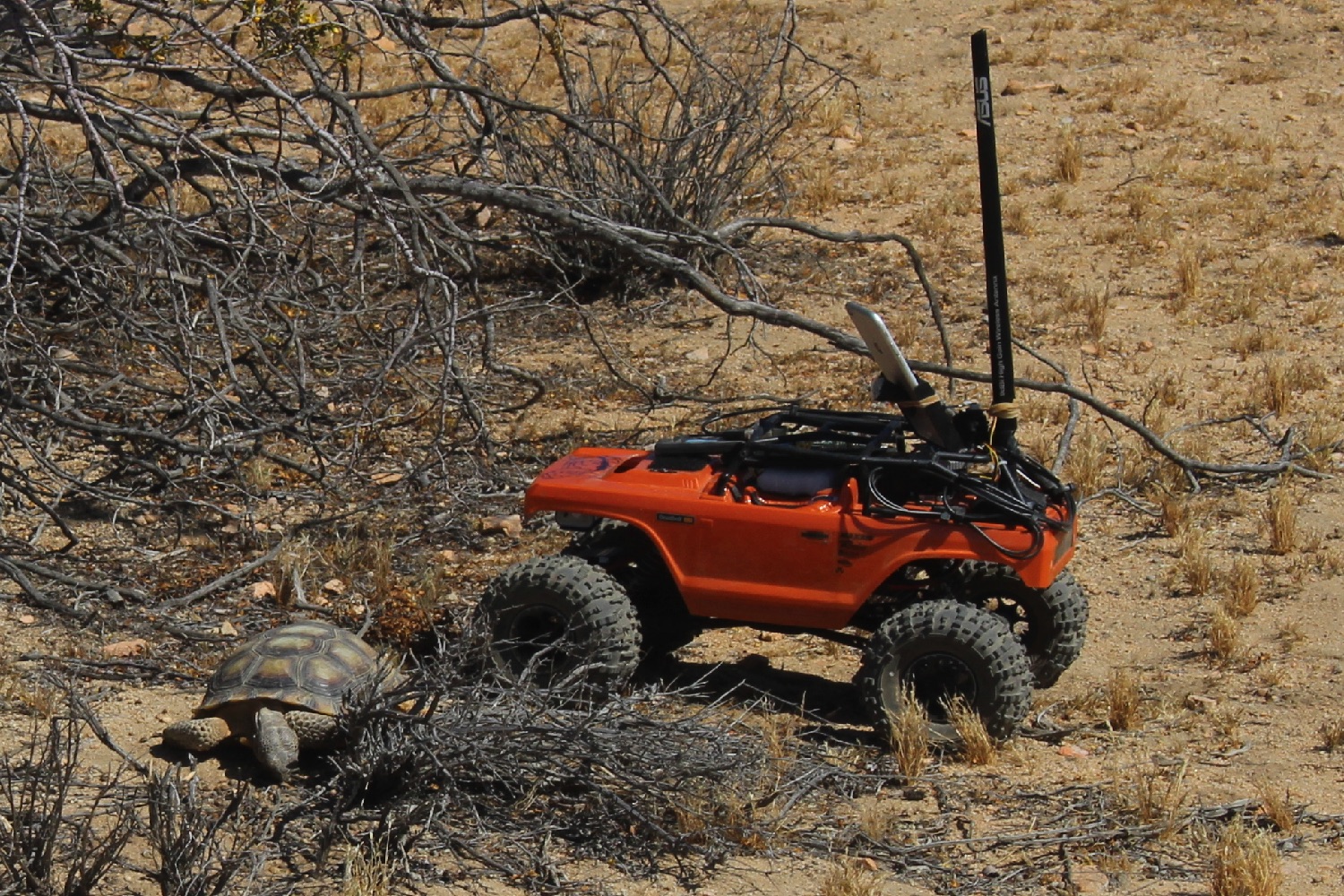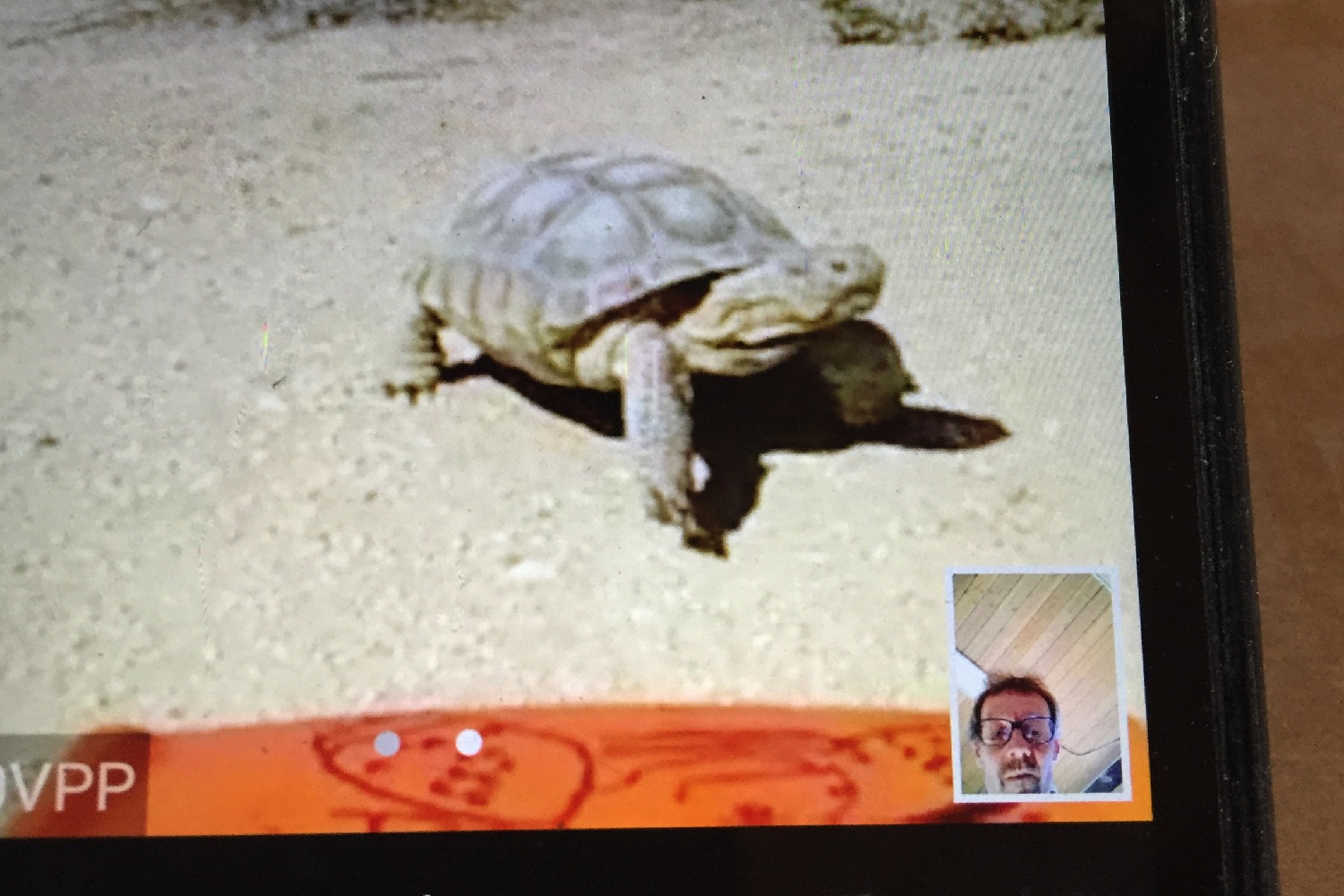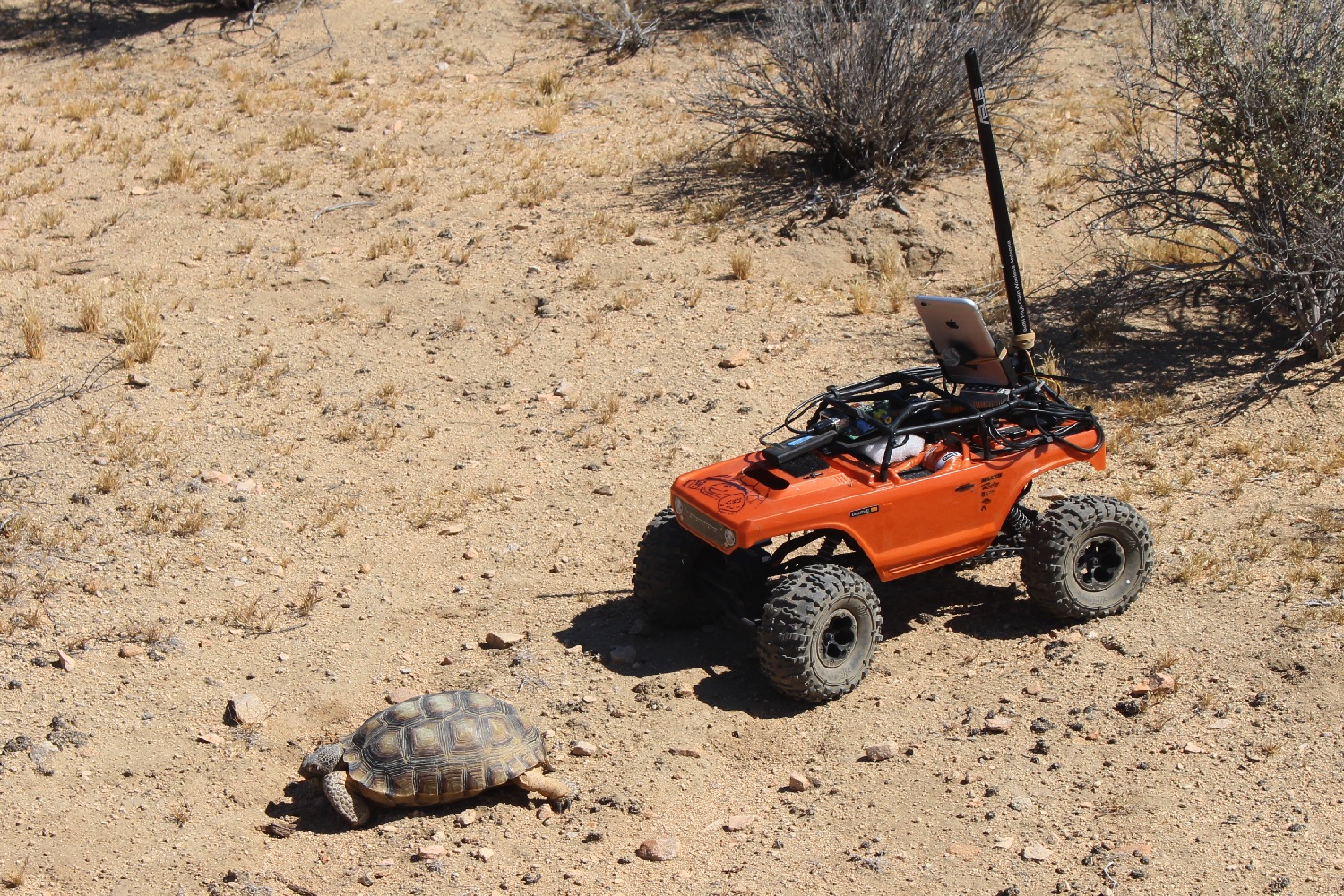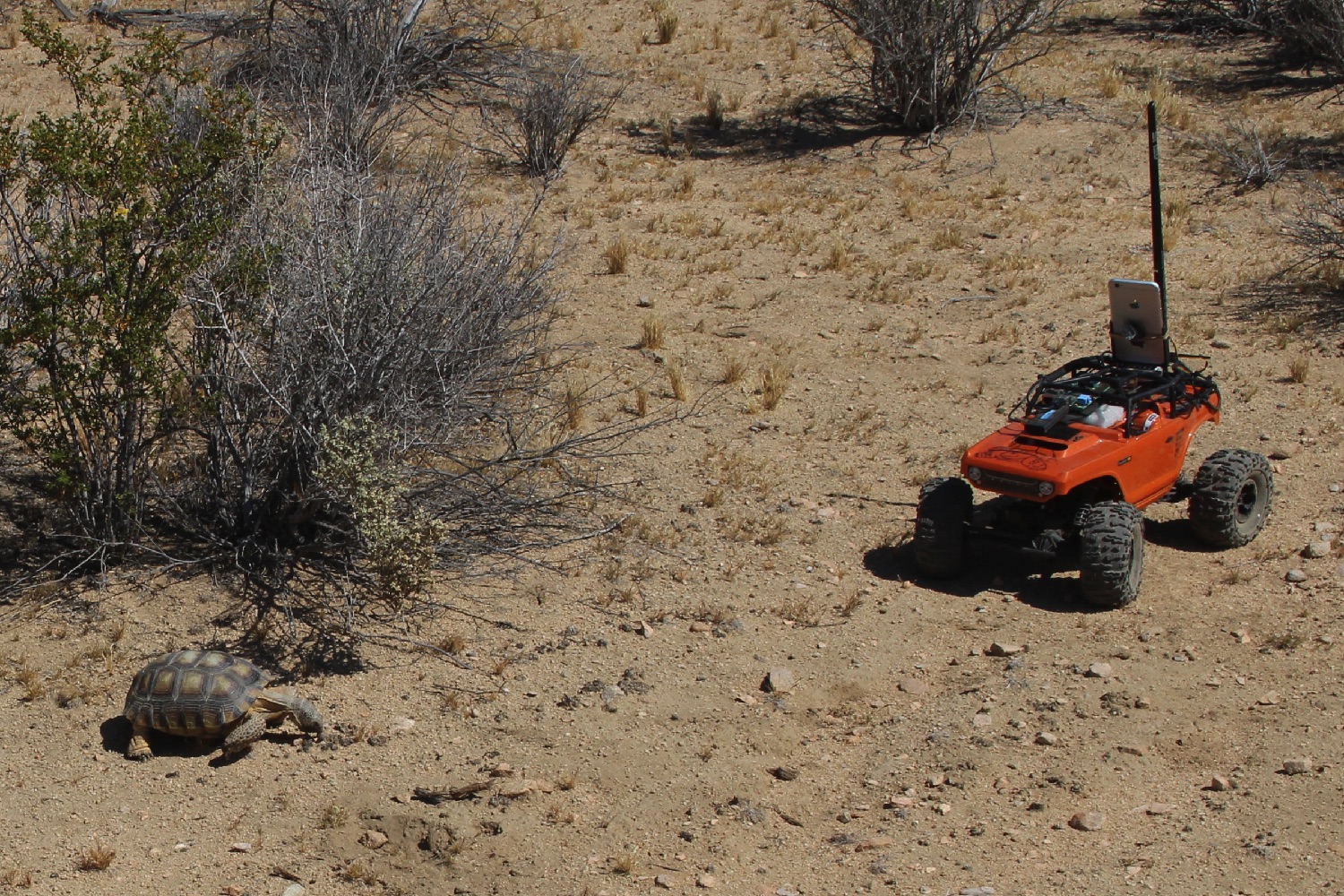A group called Hardshell Labs certainly thinks so. Led by nature-loving environmentalists, game makers and roboticists, the group is currently responding to the decline in numbers of its favorite slow-moving, shelled reptiles — mainly as the result of predation by ravens.
“Until they’re about 7 to 10 years of age, tortoises are particularly vulnerable to ravens, which can peck right through their shell,” telerobotics expert Michael Austin told Digital Trends. “In the last 35 to 40 years in the southwest desert in California, the raven population has exploded by 1,000 percent, and that’s had an enormous impact on tortoise survival rates. The number of tortoises is down by around 90 percent.”
That’s where the RC buggies come in. Operating under the name Guardian Angel, the live-streaming buggies are about the same size and speed as tortoises, and have an uncanny effectiveness when it comes to scaring off ravens.
The idea is that users from all over the world can take control of the RC rovers and use them to follow alongside the tortoises as, well, their guardian angels. Hardshell recently completed tests of a web-controlled unit, and the concept seems to be gaining traction.
“People could be shadowing the tortoises from Singapore over the internet,” Austin continued. “They could be anywhere in the world and still driving a rover right alongside them.”
It’s a quirky idea to be sure — but it’s part of a bigger mission Hardshell Labs wants to be involved with. “Imagine people all over the world repelling predators, capturing invasive species, spotting and reporting poachers, observing and logging animal behaviors, identifying plant species — from their computers,” the group writes in a statement. “Remote-controlled vehicles with webcams and GPS can go anywhere — the ocean floor, unexplored rainforests, even Mars. Why not use these tools in games that make a difference?”
Whether adding a gaming aspect to the idea of conservation can work out or not remains to be seen. But for Austin, and for Hardshell Labs’ founder Tim Shields, the overriding message is clear. “Everyone hates environmentalism,” Austin said. “Nobody wants to hear about it, ever. It’s depressing. If you make what we’re doing fun, then people get interested. It’s simple.”







